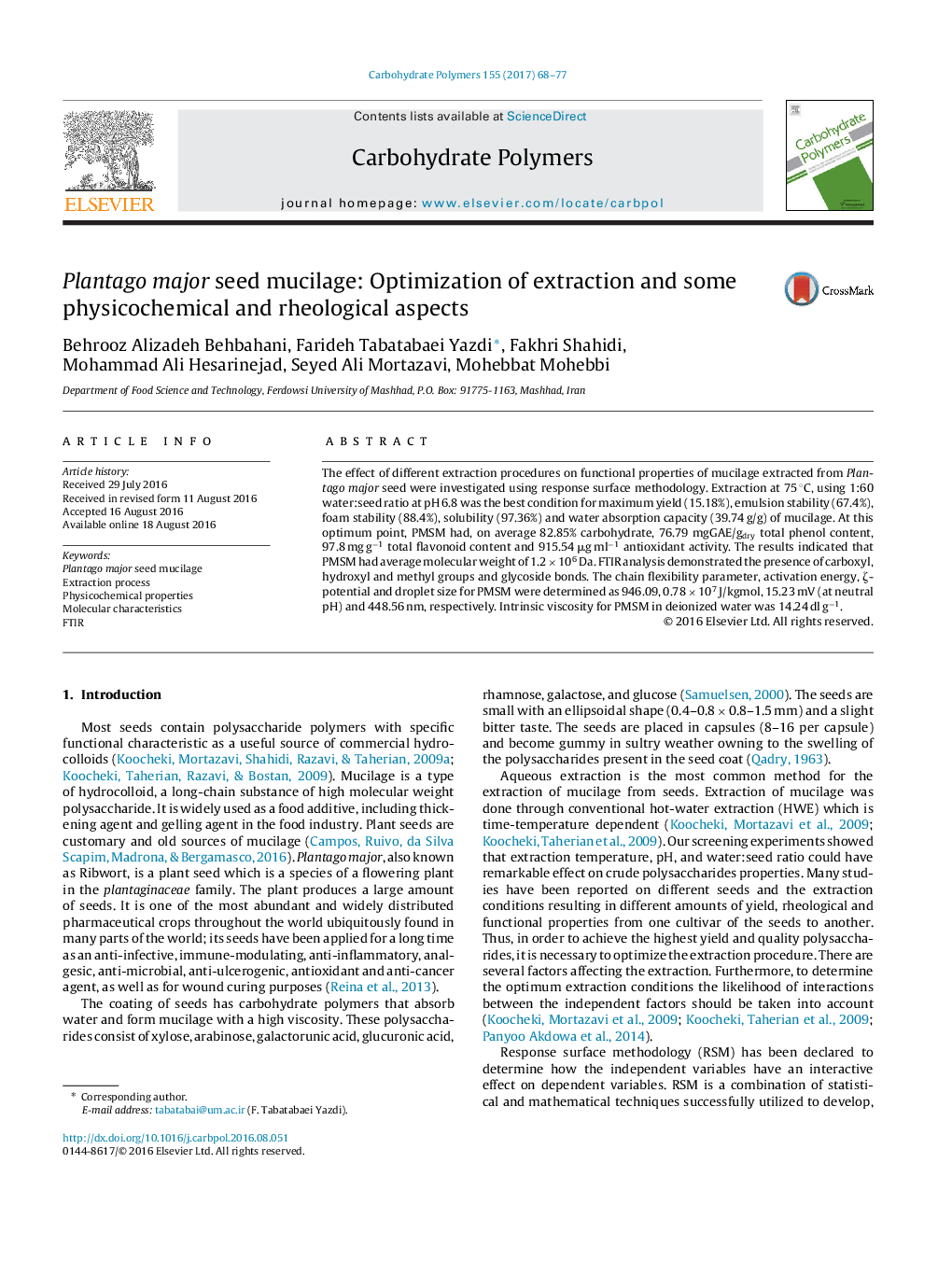| کد مقاله | کد نشریه | سال انتشار | مقاله انگلیسی | نسخه تمام متن |
|---|---|---|---|---|
| 1384568 | 1500603 | 2017 | 10 صفحه PDF | دانلود رایگان |
• Response surface methodology is used for optimization of extraction.
• Physicochemical and rheological characterization of mucilage was done.
• These findings show wide potential uses of this biopolymer in different industries in the future.
The effect of different extraction procedures on functional properties of mucilage extracted from Plantago major seed were investigated using response surface methodology. Extraction at 75 °C, using 1:60 water:seed ratio at pH 6.8 was the best condition for maximum yield (15.18%), emulsion stability (67.4%), foam stability (88.4%), solubility (97.36%) and water absorption capacity (39.74 g/g) of mucilage. At this optimum point, PMSM had, on average 82.85% carbohydrate, 76.79 mgGAE/gdry total phenol content, 97.8 mg g−1 total flavonoid content and 915.54 μg ml−1 antioxidant activity. The results indicated that PMSM had average molecular weight of 1.2 × 106 Da. FTIR analysis demonstrated the presence of carboxyl, hydroxyl and methyl groups and glycoside bonds. The chain flexibility parameter, activation energy, ζ-potential and droplet size for PMSM were determined as 946.09, 0.78 × 107 J/kgmol, 15.23 mV (at neutral pH) and 448.56 nm, respectively. Intrinsic viscosity for PMSM in deionized water was 14.24 dl g−1.
Journal: Carbohydrate Polymers - Volume 155, 2 January 2017, Pages 68–77
